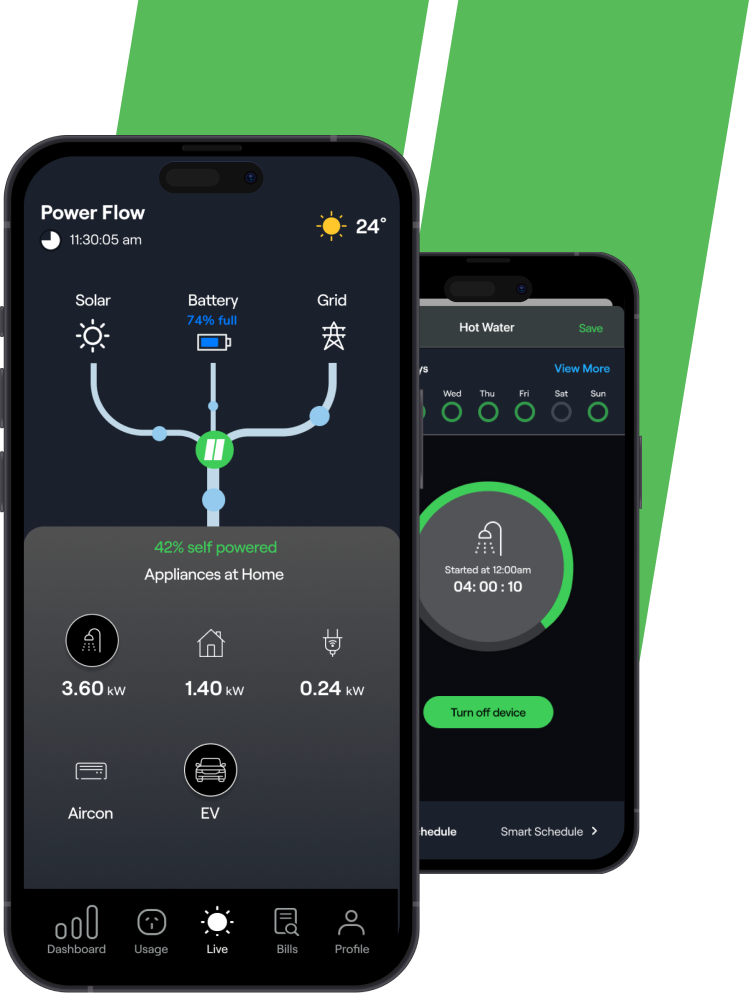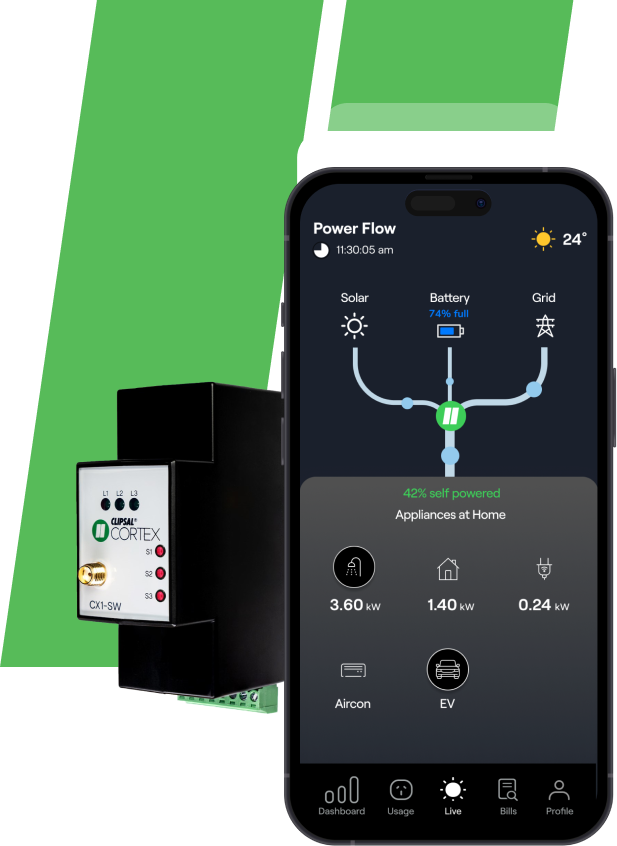Save up to $700 in the first year with Clipsal Cortex
* Saving based on average consumption of 5,300kWh/year


Empowering homeowners to make better energy choices
The Clipsal Cortex App provides useful energy insights for your home, empowering you to make better energy choices, and get more from your solar and battery system
$4,200,000
Australian Made
130,000+
An Australian Company
Clipsal Cortex is part of a 100-year-old Australian energy company Clipsal; backed by Schneider Electric Ventures. With our long heritage and global resources, we offer support, a safe pair of hands, and peace of mind.

Empowering better energy choices.
The Clipsal app empowers homeowners to take control of their energy usage and bills by helping you decide what the best plan is for your home and providing personalised insights.
Empowering better energy choices.
The Clipsal app empowers homeowners to take control of their energy usage and bills by helping you decide what the best plan is for your home and providing personalised insights.





